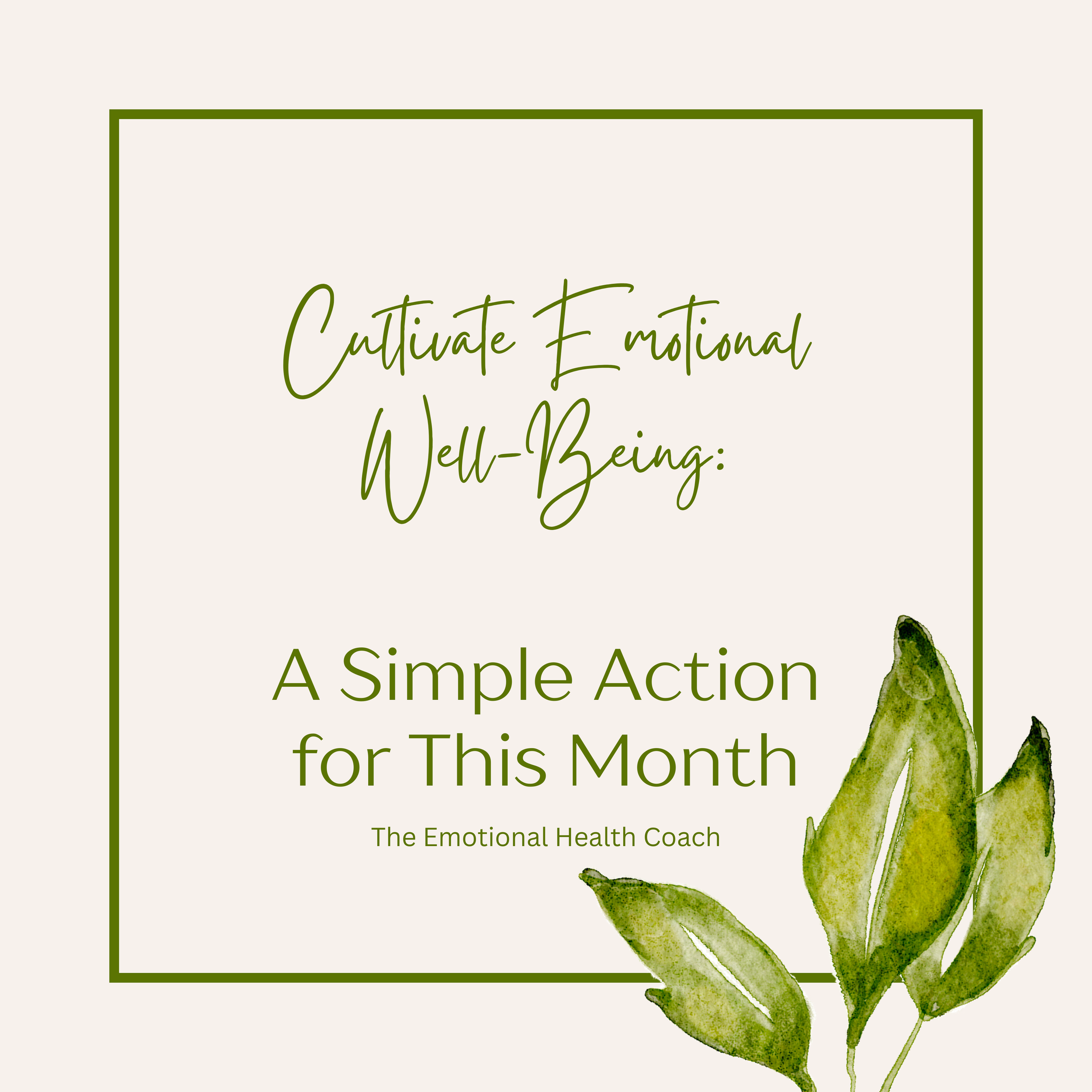Cultivate Emotional Well-Being: A Simple Action for This Month
The Vital Role of Non-Judgment in Nurturing Emotional Health
In the intricate tapestry of human experience, emotions are the vibrant threads that weave the fabric of our lives. However, societal norms and personal conditioning often encourage the judgment of our own emotions, leading to a detrimental impact on our emotional well-being. This blog explores the pivotal role of non-judgment in cultivating emotional health, emphasizing the importance of embracing and understanding our emotions without condemnation.
The Nature of Emotions:
Emotions serve as messengers from our inner selves, providing valuable insights into our needs, desires, and reactions to the world around us. They can range from joy and excitement to sadness, anger, or fear, reflecting the diverse spectrum of human experience. Yet, society or our family of origin sometimes fosters a culture of emotional suppression or judgment, labeling certain emotions as negative or undesirable.
The Pitfalls of Emotional Judgment:
When we judge our emotions, viewing some as good and others as bad, we inadvertently create an internal conflict. This internal strife can lead to emotional suppression, denial, or the adoption of unhealthy coping mechanisms. Over time, such emotional suppression can manifest as stress, anxiety, or even physical health issues, highlighting the importance of breaking free from the shackles of judgment.
The Power of Non-Judgment:
Non-judgment involves accepting our emotions without attaching value judgments to them. Instead of labeling an emotion as good or bad, we can view it as a neutral experience, acknowledging its presence and exploring the insights it brings. Adopting a non-judgmental stance towards our emotions allows us to navigate them more easily, fostering emotional resilience and promoting a more profound understanding of ourselves.
Cultivating Emotional Intelligence:
Non-judgment is a cornerstone of emotional intelligence—a key component of emotional health. When we embrace our emotions without condemnation, we create space for self-reflection and growth. This self-awareness enables us to respond to situations more thoughtfully, make informed decisions, and build healthier relationships.
Practices for Non-Judgment:
Mindfulness, the practice of being present at the moment without judgment, offers a powerful tool for fostering non-judgmental awareness of our emotions. A helpful technique to become aware of potential judgments is to reflect on what you think it says about you as a person experiencing this emotion. Does experiencing sadness make you feel ungrateful as a person? Does feeling stressed or anxious make you feel like a failure?
These are common judgments we can pick up along the way. The key to working towards emotional health is to remove judgment. Once you are aware of your judgment, separate the judgment from the feeling by looking at it as an isolated incident. Consider why you are feeling the emotion, permit the feeling to be there, and consider what you might need (sleep, talk to someone you trust, address an ongoing stressor, etc)
Conclusion
In the journey toward emotional health, the role of non-judgment cannot be overstated. By embracing our emotions without condemnation, we pave the way for a more authentic and fulfilling life. Non-judgment opens the door to self-compassion, resilience, and a deeper connection with our inner selves.
If you are struggling with emotional health and feel this is something you want to invest in I would love to work with you. Please feel free to contact us for more information and to book an appointment.



